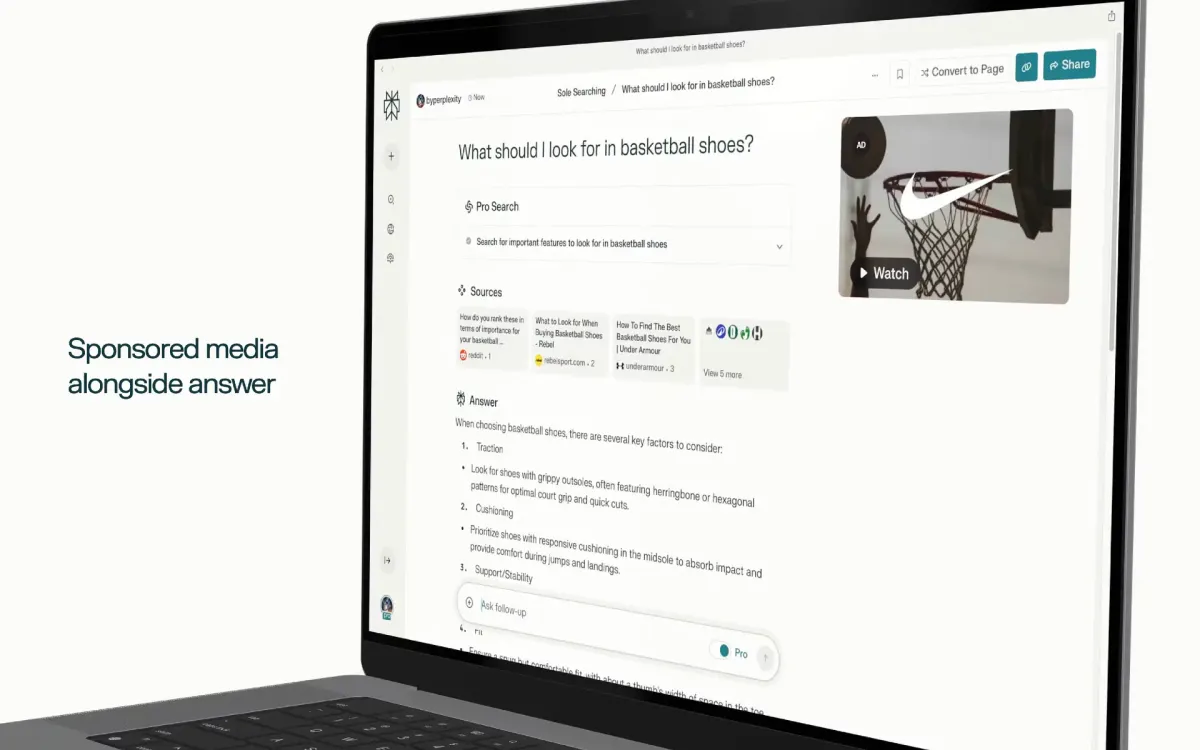Search

Perplexity AI, an AI-powered search engine competitor to Google Search, is gearing up to launch its advertising platform in the fourth quarter (Q4) of 2024. This information is based on a pitch deck obtained by ADWEEK.
Key Takeaways of Perplexity AI Ads
- Launch Date: Q4 2024
- Target Audience: High-income users with professions like medicine, law, and software engineering (based on self-reported data)
- Ad Formats:
- Sponsored related questions below answers
- Video ads on mobile (top of related questions) and desktop (side screen)
- Display ads on third-party publisher sites (potentially including partners from the Perplexity Publishers Program)
- Ad Pricing: CPM (cost per thousand impressions) with a minimum guarantee for exclusivity within categories. Expected CPM rates to be over $50 (according to a source with knowledge of the details).
- Initial Target Categories: 15 key categories including health, technology, finance, arts and entertainment, and food and beverage.
Perplexity in Numbers (according to the pitch deck)
- Monthly Queries: Over 230 million globally
- App Downloads: Over 2 million
- US User Demographics:
- 82% hold an undergraduate degree
- 45% hold a graduate degree
- 30% in senior leadership positions (self-reported)
- 65% in high-income white-collar professions
Additional Notes:
- Perplexity offers a publisher revenue-sharing program, allowing publishers to earn money when their content is referenced in answers.
- The company emphasizes brand safety features like locked sponsored related questions and the ability to block terms to avoid unwanted ad placement.
- Perplexity is reportedly in discussions with nearly two dozen brands and top agencies regarding their advertising offerings.
Overall, Perplexity's ad platform appears to target a specific audience of high-income users with various ad formats and safety features. The launch in Q4 2024 will be a major development for the AI search engine space and could potentially disrupt the online advertising landscape.

